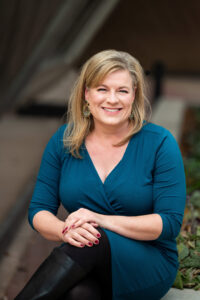What is good art? It’s a question for the ages and one creators, collectors, and patrons wrestle with as they weigh the merits of various works. What qualifies as good Christian art, and who decides, are even tougher questions. Are Precious Moments figurines or Thomas Kinkade prints closer to God’s heart, or do abstract works like Makoto Fujimura’s mineral paintings better express God’s mysteries?
We tackled these questions and many others on Thursday, Sept. 27, 2019, at “The Faithful Artist,” an evening for creatives passionate about integrating their spiritual convictions and their art. I can’t wait to hear from artist/scholar Cameron Anderson and film producer Erik Lokkesmoe, who explore the tensions creatives often feel as they seek to produce thought-provoking work, earn a living, and stay true to their core beliefs. That’s no easy task, but one I’m excited to consider.
I’d like to share three ideas that have ignited my imagination about the creative’s call:
#1) Art matters to God because He is the Alpha and Omega of creativity.
The creative process reflects God, the original eternal artist. “As a Christian we know why a work of art has value,” writes Francis Schaeffer. “Why? First, because a work of art is a work of creativity, and creativity has value because God is the Creator. The first sentence in the Bible is the declaration that the Creator created: ‘In the beginning God created the heavens and the earth.’” What a refreshing thought! Whether you consider yourself a “creative” or not, the work you do preparing a meal, designing city streets, or planting a garden reflects the Creator God’s work.
#2) Don’t get hung up on labelling art “Christian” or not.
Abstract expressionist Makito Fujimura understands the artist’s unique responsibility to illustrate or embody God’s attributes, even if their work does not declare a religious perspective. Good art can woo, intrigue, or confront us with God’s truth without being overtly evangelistic. Fujimura describes it this way:
"If [we] are lining up in a farmers’ market by a stand that we love, we don’t ask whether that person is a Christian or not. We ask whether the tomato is good or not, right? And if what is being sold at the farmers’ market stand is worthy of a dollar, then we will line up to get the best. I think, in that sense, all good things, all good creation is part of how God intended for us to enjoy. Of course, if we find out that the person selling that great tomato is a Christian, we rejoice in that and we can have fellowship over the abundance of God and how God has indeed called us to a banquet, a feast.”
“Spotlight Interview with Makoto Fujimura: Becoming Caretakers and Border-stalkers” The Reconnect with Carmen LaBarge, May 16, 2017.#3) Artists occupy an important middle ground between the faith community and the general market.
This middle ground does not require artists to abandon their convictions; rather it positions artists to express the deeper truths of their spiritual lives by inviting conversation instead of imposing their ideas on others. “It’s not the filmmaker’s job to give audiences all the answers,” argues filmmaker Erik Lokkesmoe.
“Is a movie designed to give the audience a sense of confirmation in their beliefs - no ambiguity, you know exactly what you should believe. Is that the right approach? Or can great art leave lots of margin? You don’t know what you feel, you don’t know what you should think, but you’ve been presented with something so profoundly beautifully or so descriptive of the human condition that you have to wrestle through it on your own or with others. In our best case scenario, when the credits are rolling the audience is haunted by emotions they can’t explain.”
“The Space Between with Erik Lokkesmoe,” Makers and Mystics podcast, Season 4, Episode 2This concept of occupying middle ground raises more questions than it answers, and asks artists to seek God throughout the creative process. To honor God, does art need to provide all the answers or is inviting audiences into a spiritual journey enough?
Lots to think about!
Photo by Maggie Markel on Unsplash.

